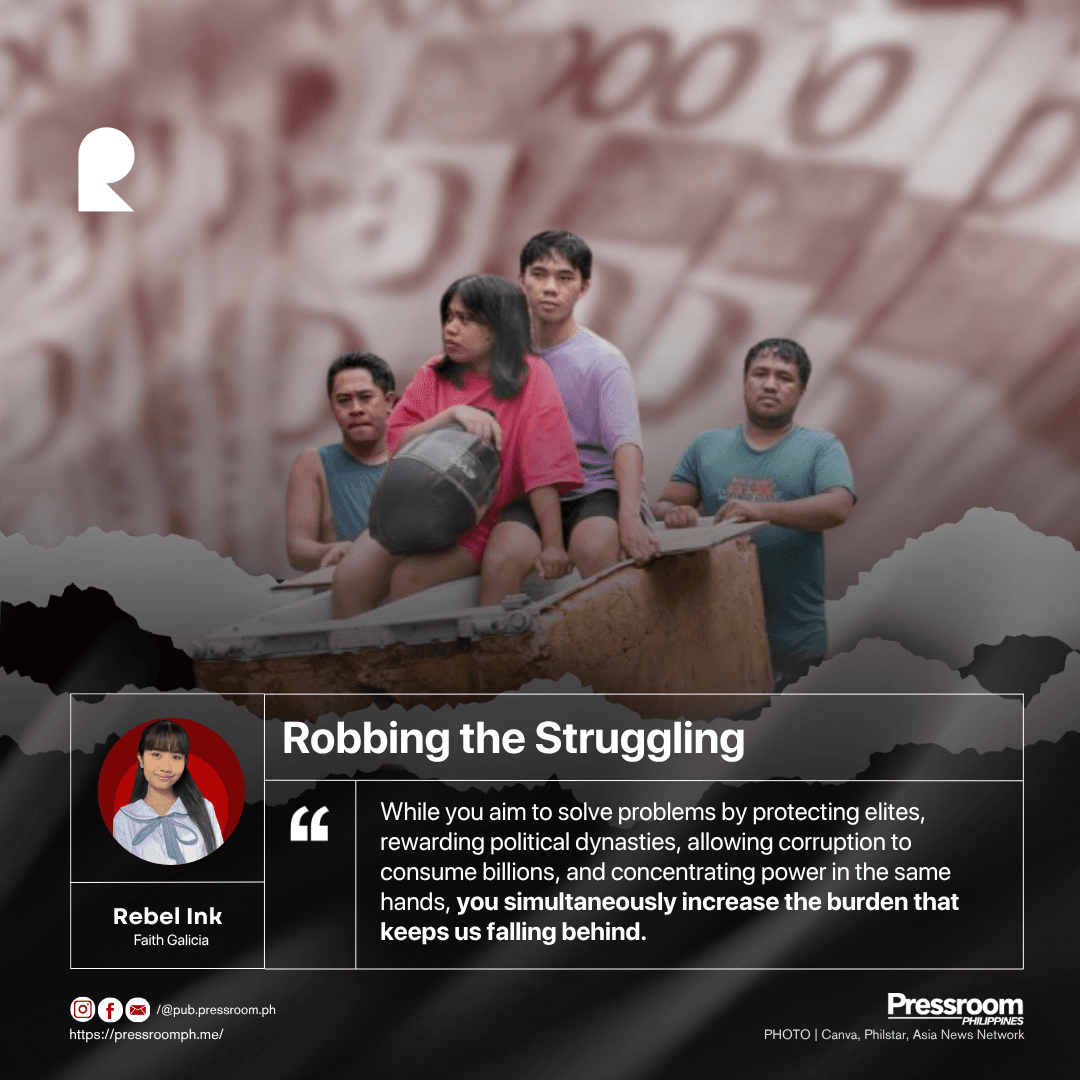It’s press conference season again — the time when student journalists scramble to polish leads, trim excess adjectives, and pray that their headlines hit harder than their crash outs. The Schools Press Conference is supposed to be a celebration of press freedom. Yet, for an event that is made entirely for it, our articles are the first ones to be jailed in drawers. The only thing our works are really getting pressed by? The tight cabinets they’re placed in.
We spend hours writing pieces meant to shake perspectives, only for them to end up shaking hands with dust mites in some bureaucratic storage room. We pour our hearts out, chasing meaning in every metaphor, hoping someone somewhere will see the world differently because of our words. But the only eyes that ever meet our articles belong to the judges — and maybe the contest chairperson if they’re bored enough.
It’s ironic how the contest teaches us to write for the public but not to the public. It turns journalism into performance: who can structure best, not who can stir souls. We’re graded for how well we follow the inverted pyramid, but not for how deeply we challenge the walls that made the pyramid necessary in the first place.
Our words could’ve sparked conversations, challenged complacency, or at least made someone think twice before littering—but alas, they’re too busy suffocating under layers of stapled bureaucracy.
And somewhere between the deadlines and the medal tallies, we forget what we came here for. We start writing to win, not to matter. We polish every line for a panel, forgetting that a panel’s opinion doesn’t hold a candle to a whole nation’s perspective.
Journalism was never meant to be confined to rubrics — it was meant to reach people, to ignite something, to refuse to stay silent when silence is convenient. Because at the end of the day, what good is a “best-written” article if it never gets read? What good is a gold medal if the truth that never leaves the envelope shines more?
The sad reality is that these aren’t isolated frustrations — they reflect a broader crisis in campus journalism. The College Editors Guild of the Philippines (CEGP) reported 206 cases of campus press freedom violations from 2023 to 2024 alone, including 58 instances of censorship, 35 administrative interventions, and 37 cases of withholding or misusing publication funds.
Additionally, a 2021 study titled “Express or Suppress: School Administrators’ Understanding of Campus Journalists’ Freedom of Expression” found that many administrators still misunderstand or downplay student journalists’ rights, with some even justifying prior restraint “for school reputation.” This mindset has enabled environments where articles critical of local governance, politics, or even school administration are censored before publication.
Every article left unread is a lost opportunity — a commentary that could’ve inspired, a feature that could’ve humanized, a news story that could’ve mattered. If only schools or divisions made space to publish these works — to let the public see what young journalists are truly capable of — then maybe this so-called press freedom would actually mean something beyond a season-long competition.
We shouldn’t write just for trophies or certificates. We shouldn’t let panels decide only what’s acceptable or worthy. A panel’s praise is fleeting; a nation’s perspective lasts. What stories remain after the medals? What truths stay once the awarding ends?
We must remember that journalism is not a race for recognition but a call to responsibility. When funds are withheld or content censored, it doesn’t just limit our opportunities — it distorts the truth we’re trying to tell. When administrators dictate what’s “safe” to publish, they teach us that obedience matters more than honesty. And when our articles are kept in storage rooms, labeled “for record purposes,” we are reminded that silence, not expression, still wins in some institutions.
So, here’s your sign: stop waiting for permission to be heard. If the system won’t publish your words, build your own platform. Join or start outlets that actually let your work live beyond contest folders — campus papers, online magazines, youth collectives, or independent blogs. Ask your school publication for space, or revive it if it’s fallen silent. Post that story. Share that essay. Turn your social media into your newsroom. Publish your truths where people can actually read them, not where they’ll be locked away.
If the irony is loud, our articles should be louder. Every year, we write about freedom, yet after the contest season? A paper never to leave that folder again.
Maybe it’s time we remember what we were really trained to do — not just to compete, but to communicate. Not just to win medals, but to move minds.
After all, the true measure of a journalist isn’t how well they write under time pressure — it’s whether their words outlive the contest that tried to contain them.




